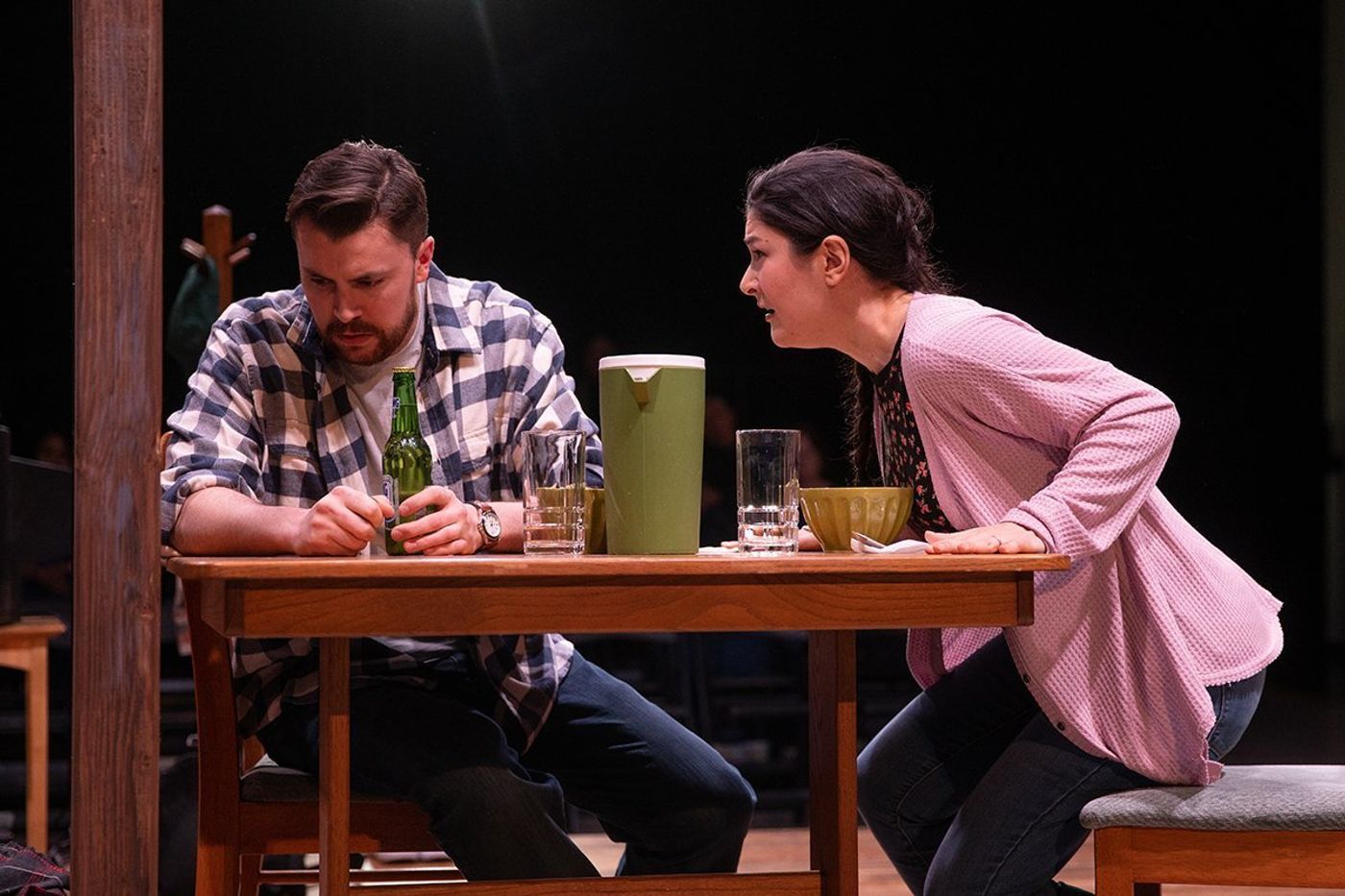Review: PENELOPE at KC Lyric Opera

Here is the truth: you don't come home from war, not really. The you that does come back is not the you that marched away. There is a stranger: older, with a different view of the world. A person for whom there are sights that cannot be unseen, deeds that cannot be undone. 'Normal" is a curious word, like a faraway beacon. There's an odd sort of taste to it. And the ones we left behind are given this stranger, this same-yet-different person, and must make do and deal with what has come back to them.
The closing event of the Lyric Opera's 2018-2019 Explorations series was presented Saturday night at the Lyric's space downtown. It is in fact the third iteration of a work that has gone from monodrama to orchestral to a smaller chamber-style ensemble which premiered that evening. In it, Penelope (Annie Rosen, Mez) greets her husband Odysseus (Michael Scahill) back from some unspecified war. Over the course of the hour-long song cycle, she tries to get through to this "stranger with the face of the man I loved", putting herself in the place of the other women he must have encountered during his time away, the soldiers he marched with, even Odysseus himself. Over a long, agonizing night - or several nights - he slowly begins to find his way back spiritually as well as physically.
The music by Sarah Kirkland Snider works extremely well with Ellen McLaughlin's libretto, and this reviewer felt the musical arrangement (string quintet with percussion) really worked very well, fitting the intimate nature of the performance. "Penelope" has been performed over 40 times in its previous incarnations; we cannot help but feel that this version will see many performances as well. Some of the pieces were particularly striking, such as"Home", which Penelope sings as she imagines her husband's trying to find his way back. "Where are you going, says the world. I am not through with you yet." One does not have to have served to feel that one to the bone.
The performances were very well done, with Ms Rosen ably taking the burden of the piece. Mr. Scahill, in a mostly nonverbal role, shows the essence of doing a lot with very little: a gesture, a hesitation, restless stirring. The musical accompaniment was very ably done; there was a moment at the beginning when this reviewer was worried the music would overwhelm Ms Rosen's voice, but happily this proved not to be the case.
Someone once said the deepest scars are those that do not show. In a time of what seems to be perpetual war, the long-term consequences are becoming an all-too-common part of too many families' lives. It is possible that perhaps the same empathy and understanding that allows people on the home front to heal together may be employed in ending these seemingly endless conflicts. It is a hope, but a distant one. And one truly feels it is no closer now, than when Homer cried to the muses to tell him the old story, so long ago.
Reader Reviews
Videos

